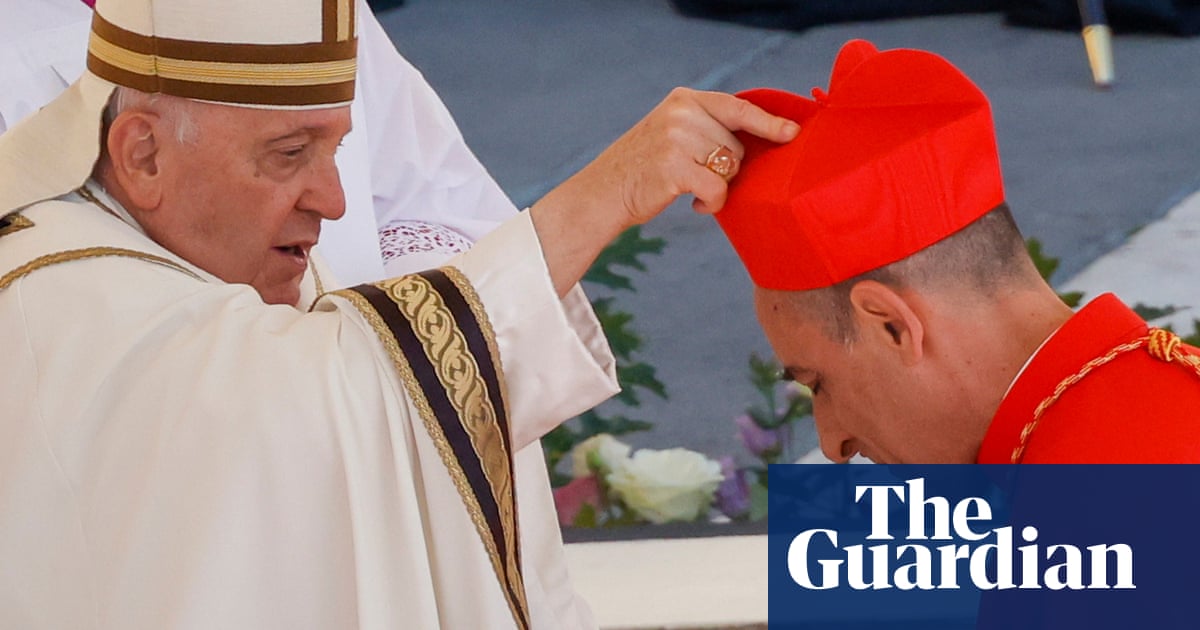
had no advance knowledge either of Evgeny Afineevsky’s documentary, Francesco, or the interview in it that contains Pope Francis’ new formulation of his earlier position on same-sex civil unions. However, it didn’t come as a surprise to me. Anyone with any pastoral experience knows that in dealing with an individual’s personhood, you start from where they are. Given a very gay and very closeted episcopate in many countries, for whom serene and adult conversation about these things has, until recently, been almost impossible, the question has largely been: how long would it take for the basic good sense of the majority of Catholic people and what they have learned about human sexuality to percolate upwards so that senior clergy needn’t be frightened of it? And it is here that Pope Francis has been so good. He clearly isn’t frightened of the issue.
This was apparent to me when he called me by phone to affirm me in my priesthood, nullifying an attempt that had been made to remove my clerical status because I’m an openly gay man. “Soy el Papa Francisco,” came the voice on the other end of the line, out of the blue, on a July afternoon in 2017. And then this: “I want you to walk with deep interior freedom, following the spirit of Jesus. And I give you the power of the keys. Do you understand? I give you the power of the keys.”
When friends yesterday started to bombard me with news links to the story that Pope Francis had stated his support for same-sex civil unions, I experienced both surprise and surprise at the surprise. As I see it, what he said is both something not especially new and yet genuinely “a big deal”. Not especially new in that it was well known that, prior to becoming Pope, the then archbishop Bergoglio had proposed same-sex civil unions during the debate about same-sex marriage in Argentina in 2010. That was at the time a very brave position: the Vatican had specifically and publicly forbidden Catholics from supporting any form of recognition of same-sex relationships, even as a “lesser evil” to supporting same-sex marriage. Since becoming Pope, Francis had referred to his Buenos Aires position in interviews on a number of occasions, though not, as far as I’m aware, on camera.
So why are these latest comments “a big deal”? In part because the holy father is clearly representing such civil unions as a good and desirable thing, to be actively promoted, rather than a lesser evil. And second, because he affirms the rightness of same-sex couples forming a family and being part of the family of the church. This will evidently create waves in countries where homosexuality is illegal, as well as causing heartache to conservative Americans who have sought legal exemption from the employment of same-sex couples who have entered into civil unions. While only apparently a tiny shift with regards to the “lesser evil” view, Francis’s position is inconceivable for someone who believes same-sex acts to be mortal sins, leading those involved to go to hell. If you believed those things you would seek to break up such couples, not stabilise them.
From which we can deduce that Pope Francis does not believe those things. And here I want to express my surprise at the surprise. I think the English-speaking world, with its enlightened and Protestant assumptions about how religious teaching works, doesn’t really grasp how the discussion of LGBT people in the Catholic church has been panning out. There are no major points of doctrine at stake, nothing in the creeds, putting at risk the shape of our salvation. And there are no real scruples about the apparently hostile biblical texts, since fundamentalist readings are, in any case, officially disapproved by church authority.
The presenting issue is one of anthropology, and is fairly simple: either it is true that being gay or lesbian is a vicious or pathological form of a humanity which is only authentically heterosexual; or it is true that being gay or lesbian is simply something that is a non-pathological minority variant in the human condition. If the former, then “giving in” to being gay or lesbian is to follow the path of your objective disorder, and ultimately to exclude yourself from grace. If the latter, then becoming who you are starts from who you find yourself to be, including your sexual orientation, and the appropriate humanisation of your sexual desire will be worked out in appropriate relationships over time.
Some commentators have been quick to point to the distinction between same-sex civil unions and marriage, saying that the one is possible for Catholics while the other never will be. I think that’s a bit of a canard. As a priest who has been privileged to be a witness at several same-sex ceremonies, where on each occasion the couple gave their own title to what they were doing, I would say this: let the cake rise before you put on the icing. The cake in question is our shared culture and knowledge concerning publicly lived and legal same-sex couplings.
The important thing has been the achievement of legal guarantees for stable living. Soon the first generation of gay and lesbian kids for whom civil marriage was never an impossibility will reach marriageable age. That we have the cake, and the Pope’s affirmation that we should have it, is wonderful. The discussion about the shape and colour of the icing will no doubt be all that and more.
• James Alison is a Catholic priest and theologian












